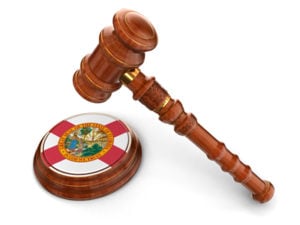
We have previously discussed the importance of accurately calculating the average weekly wage in a Florida workers’ compensation case. As the average weekly wage determines the compensation rate paid for lost wages and impairment income benefits, making sure all appropriate bonuses and fringe benefits are included in the calculation is extremely important. A case was handed down by JCC Weiss on September 15, 2016 addressing a bonus that was paid within the 13 week calculation period. Generally speaking, the relevant question is: When was the bonus earned? If the bonus was earned during the 13-week calculation period, it should be included in the the average weekly wage. However, when the bonus is earned is not always an easy question to answer.

In McKeon v. Lee County School Board (OJCC#: 11-007145), the claimant was paid an annual, one-time non merit based payment during the 13 full weeks preceding the work injury. Below is the relevant facts of the case:
“The bonus was paid pursuant to a collective bargaining agreement. To be eligible for the bonus, Claimant had to be a full or part -time SPALC (Support Personnel Association of Lee County) employee, employed during the pay period of the bonus, and had been employed for at least one day more than half of the school year. The bonus was earned during the 2009 -2010 school year, which was from July 1, 2009 to June 30, 2010. The bonus did not increase Claimant’s base pay. There was no merit or performance component to the bonus.” The amount of the bonus depended on how many days an employee worked and the amount of money set aside by the employer in a fiscal year.
The relevant question decided by the court was whether the bonus was to be wholly included in the AWW or whether it would be annualized and the weekly amount added to the corresponding 13 weeks.
Each side relied on opposing JCC decisions to support their respective positions:
“EC relies on OJCC case No. 09- 004743KAS, issued on March 2, 2015, wherein Judge Sturgis included a onetime $1,000.00 bonus in the AWW by annualizing it over the full year. The evidence before Judge Sturgis was that the $1,000.00 bonus was intended as a one -time payment in lieu of a
salary increase for state workers and the bonus was intended to cover the 2008 fiscal year. Therefore Judge Sturgis found it was proper to annualize the bonus over the full year rather than include the entire bonus in the 13 week wages.”
“Claimant relies on OJCC case No. 09- 029378NPP, issued on June 10, 2010, wherein Judge Pitts found that a bonus was earned when the injured worker received it, and as that occurred during the 13 weeks prior to the industrial accident, the entirety of the bonus, and not just 13/52 of the bonus, was included in the AWW.”
JCC Weiss ultimately accepted the claimant’s position the bonus should be included in the AWW wholly, and not annualized, because the claimant did not earn the bonus at any point in the year–it was only paid because the claimant was employed and the employer set aside sufficient money to allow for the bonus. The reasoning was stated as follows: “…the key determining factor in whether an employee received the bonus was whether they were employed during the pay period the bonus was paid. Also, there was no merit or performance component to the bonus…the totality of the evidence shows that Claimant did not actually earn any part of the bonus during the fiscal year. Rather, the bonus would be paid, if at all, only if there was sufficient money set aside by the Employer…”
If you have questions regarding an average weekly wage in Florida workers’ compensation cases, or any other workers’ compensation question-contact one of our Tampa work injury lawyers for a free consultation. Our firm has been representing injured workers in the Tampa Bay area since 1989.
